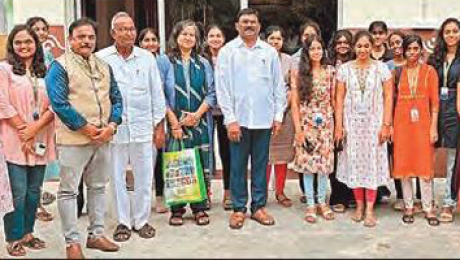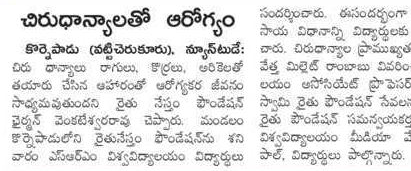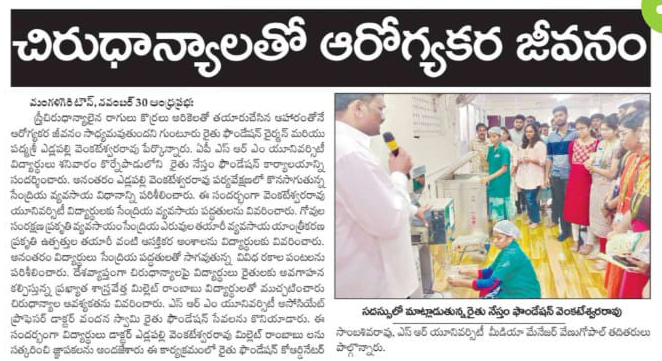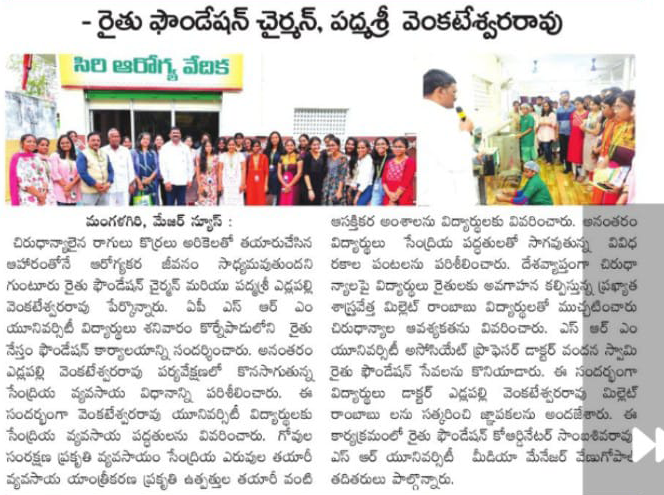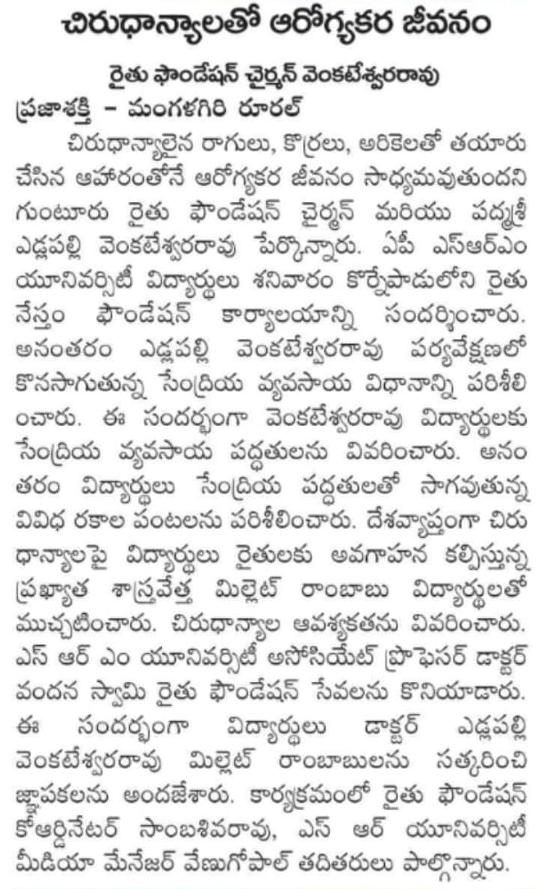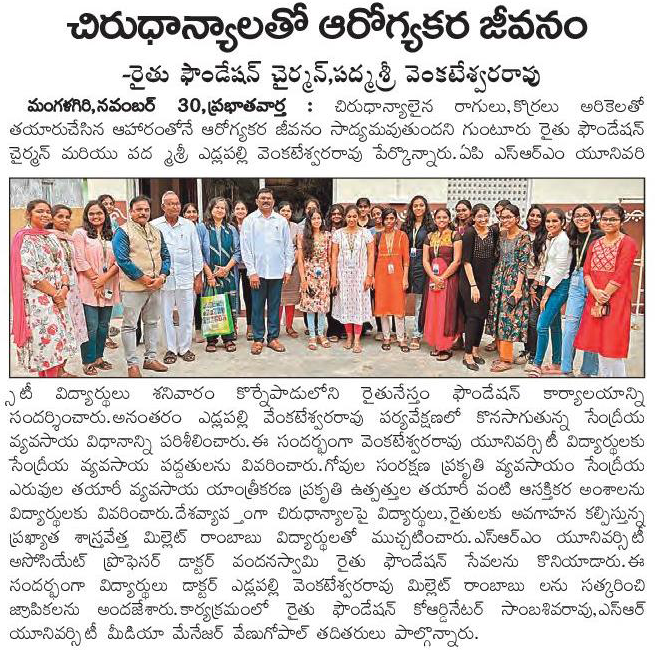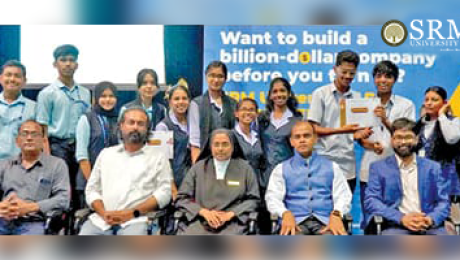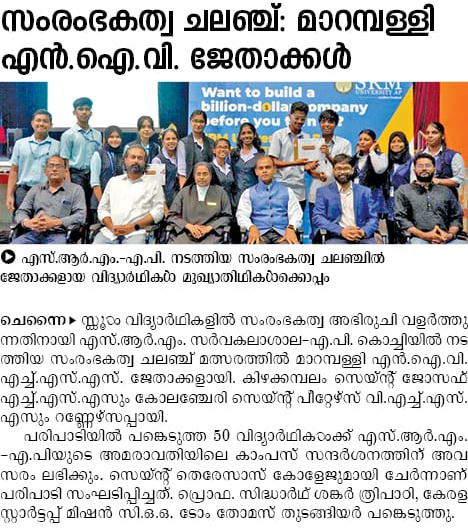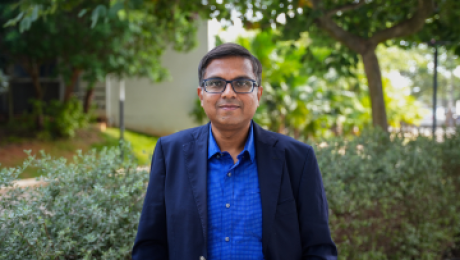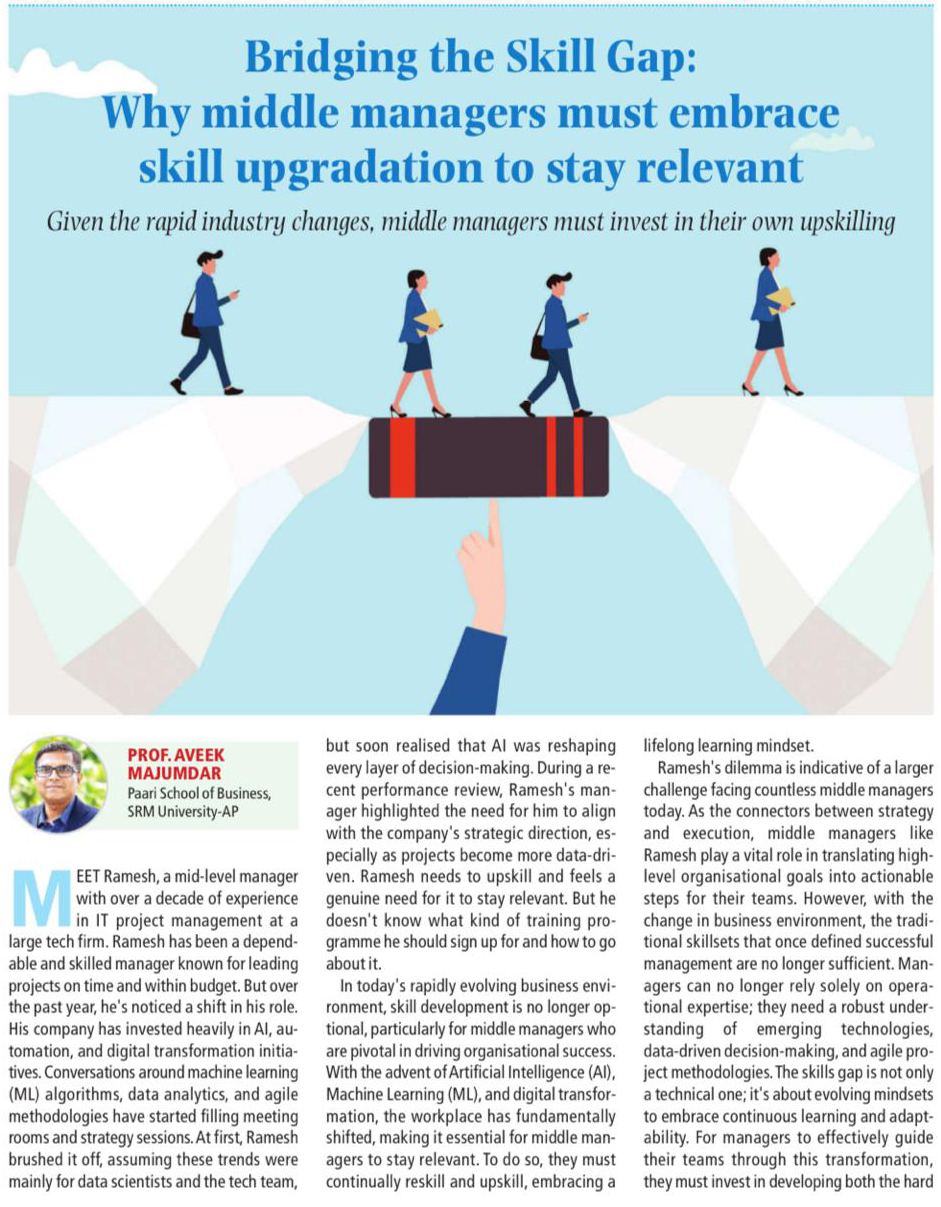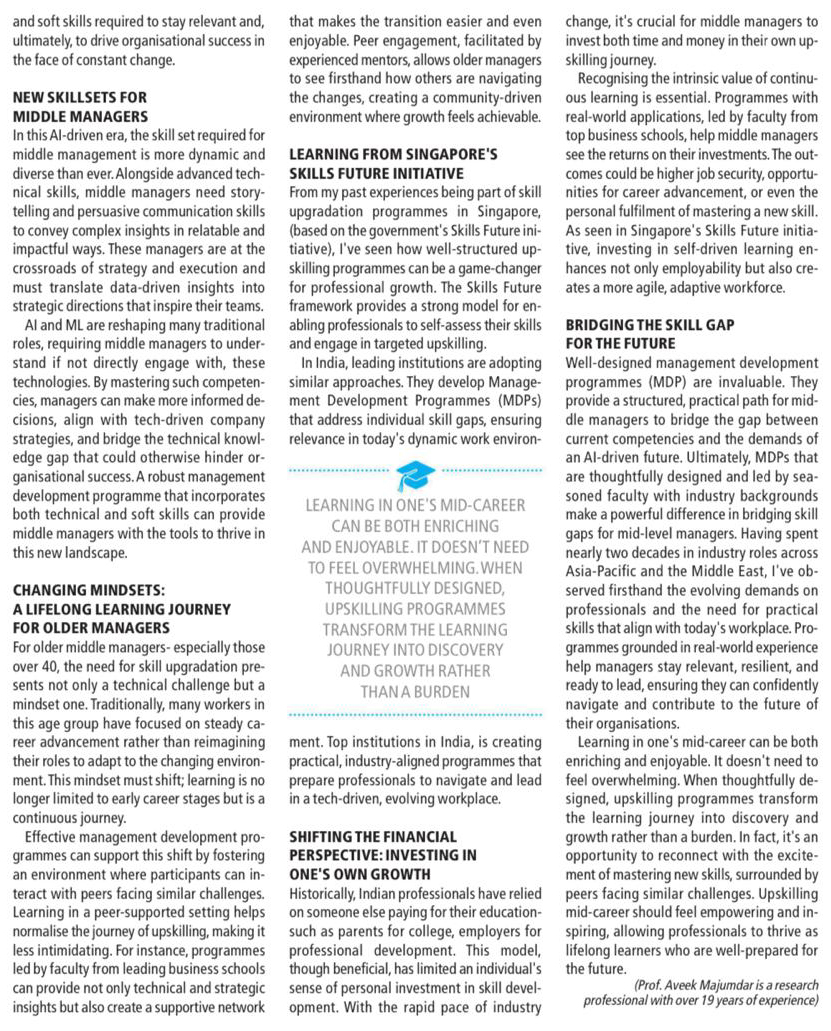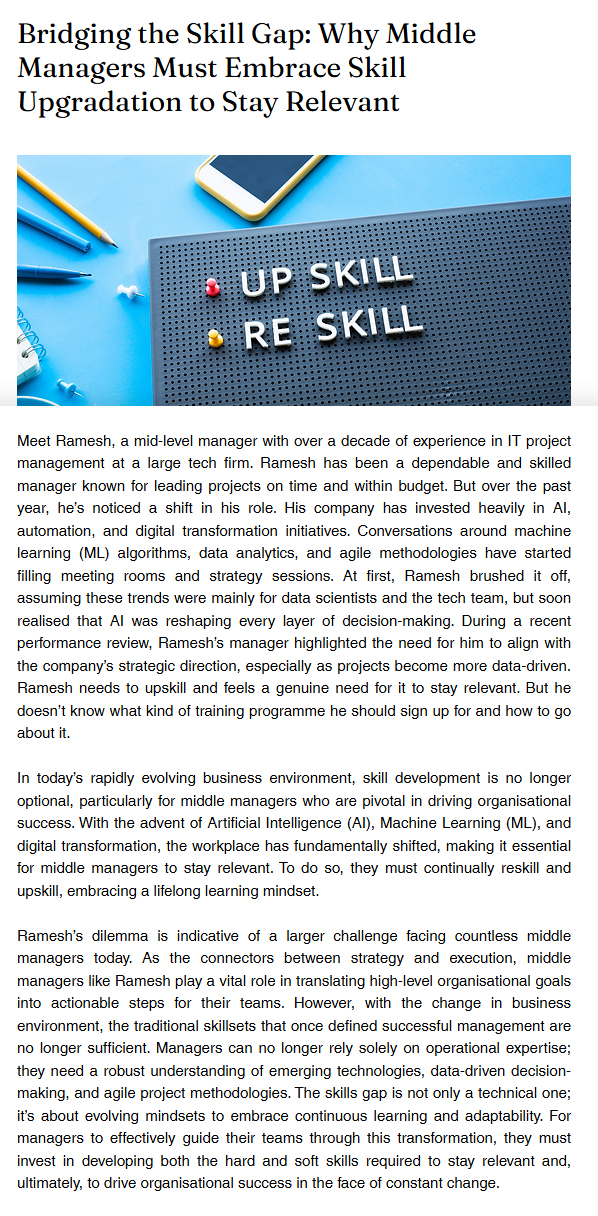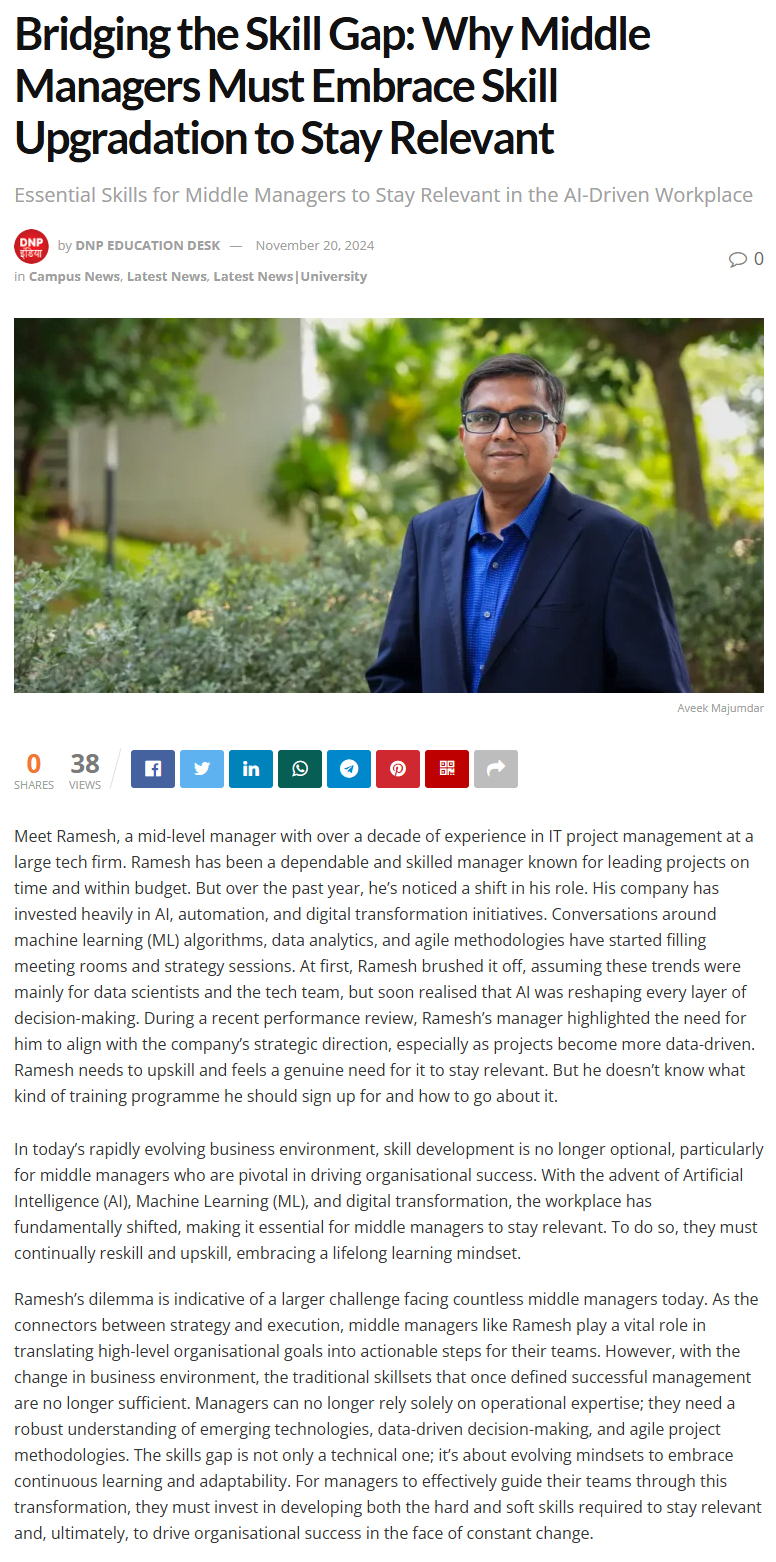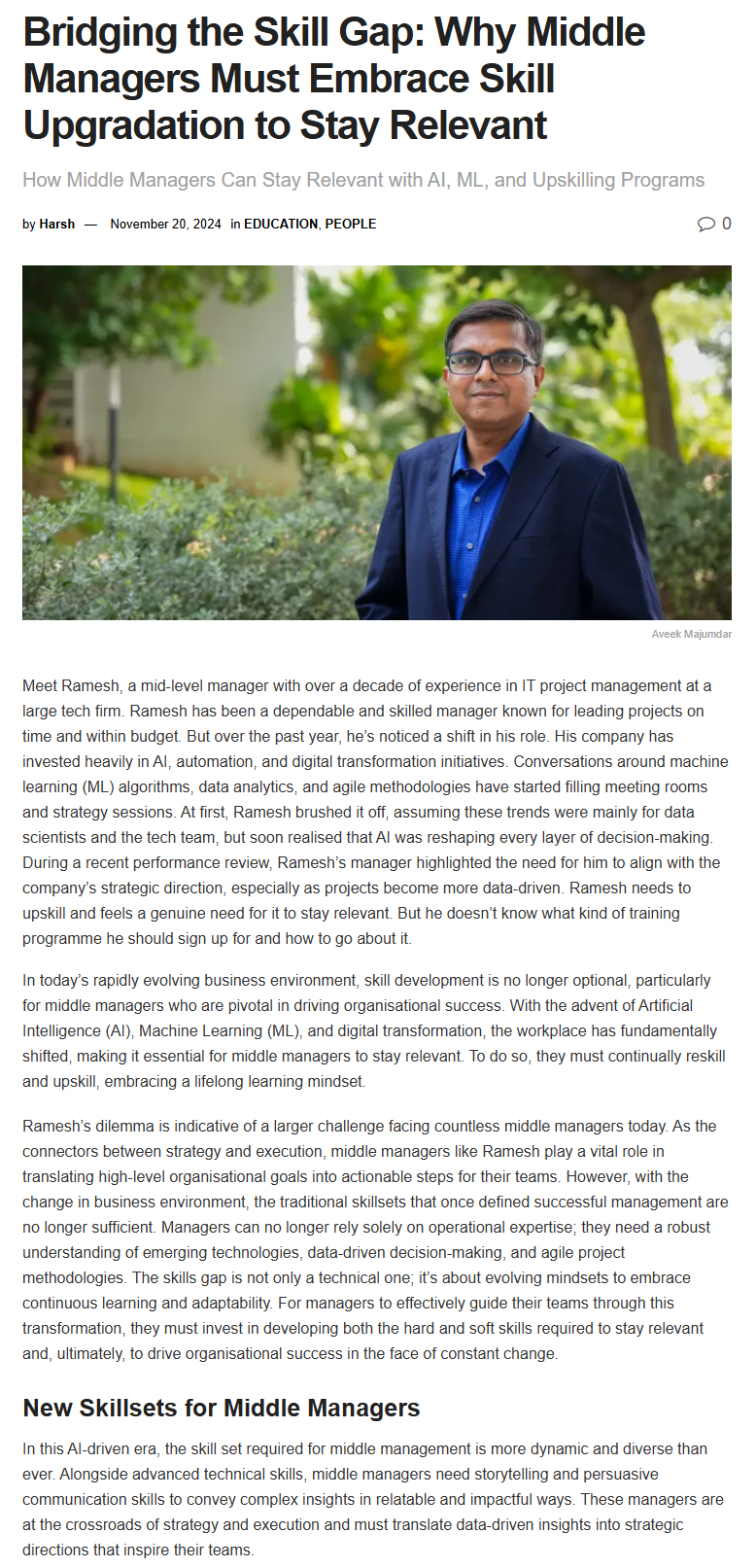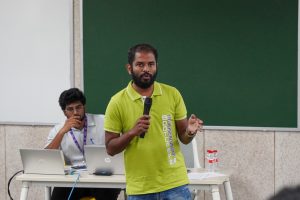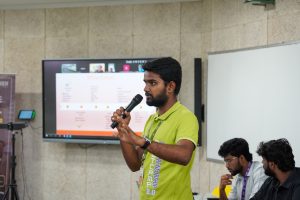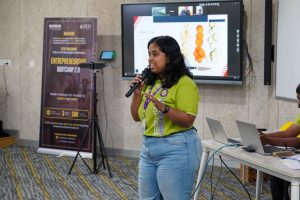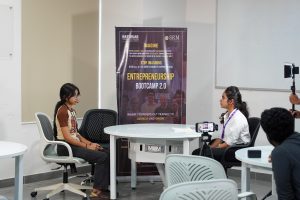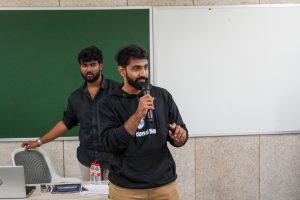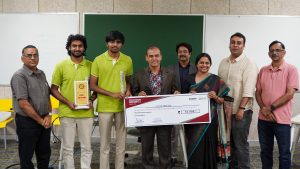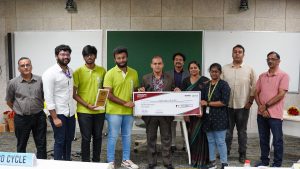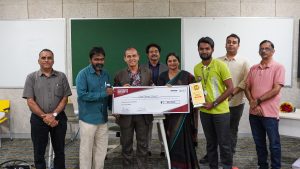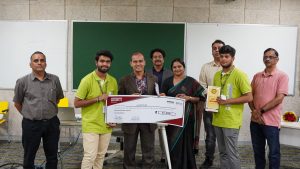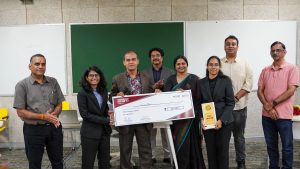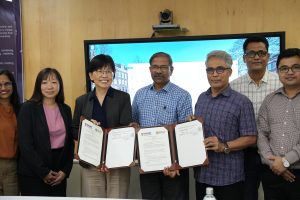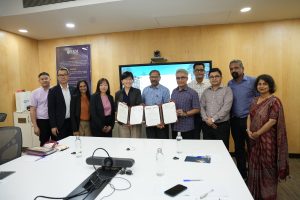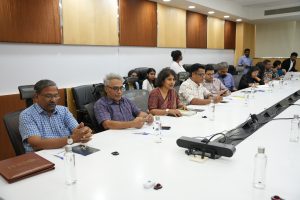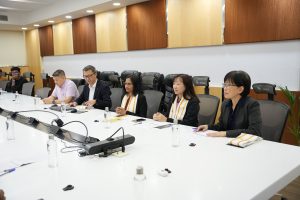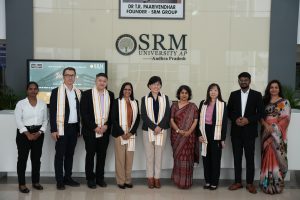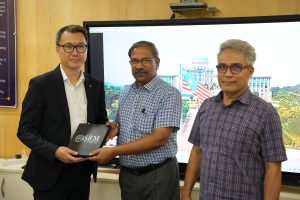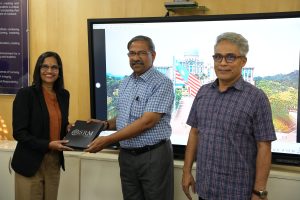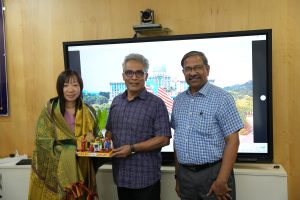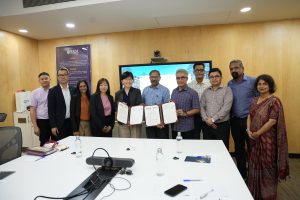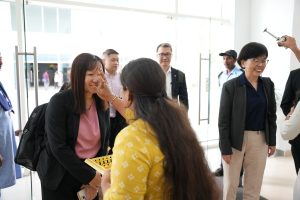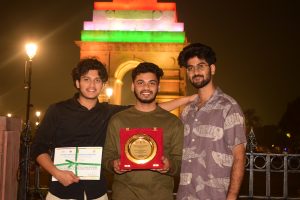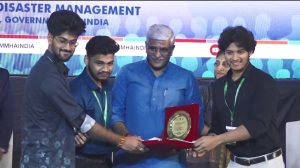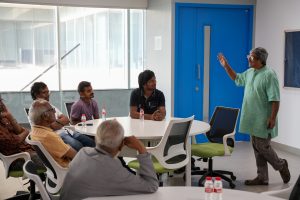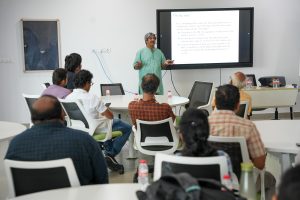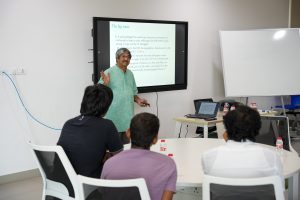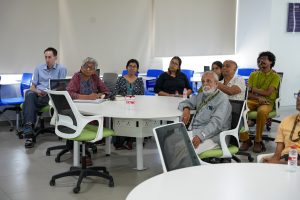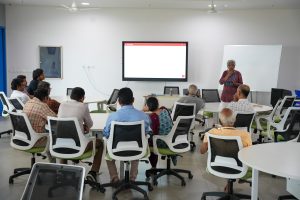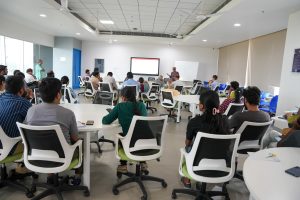FDP on Algebra, Analysis, and Number Theory Concluded Successfully
The Department of Mathematics at SRM University-AP hosted a successful Faculty Development Programme (FDP) on Algebra, Analysis, and Number Theory (AAN–2024) from December 16 to 20, 2024. This initiative aimed to strengthen faculty expertise in foundational mathematical disciplines essential for undergraduate (UG) and postgraduate (PG) education while also promoting effective teaching strategies.
Held online via Zoom, the programme attracted over 500 interested participants from across India, although due to platform capacity, 480 were accommodated. The FDP featured a series of keynote lectures by distinguished speakers focusing on core areas of mathematics.
Prof. V Kannan delivered an extensive session on analysis, discussing key theorems such as the Bolzano-Weierstrass theorem, the Intermediate Value Theorem, and the Heine-Borel theorem. The theoretical insights were complemented by tutorial sessions led by research scholars Mr Priti Prasanna Mondal and Ms Athulya P, who assisted participants in reinforcing their understanding through practical examples.
In the realm of number theory, Prof. Kalyan Chakraborty’s engaging lectures covered topics including plane curves, rational points, and elliptic curves, emphasising their importance and applications. Tutorial sessions by Dr Arkabrata Ghosh and research scholar Ms Leena Mondal supported these discussions with additional insights.
Dr Subha Sandeep Repaka presented comprehensive lectures on algebra, detailing concepts such as the structure of cyclic groups, Lagrange’s theorem, and Sylow’s theorems. These sessions were paired with tutorials that helped participants apply and solidify their knowledge.
Under the leadership of Convenor Dr Sandeep Kumar Verma and Co-Convenors Dr M Radhakrishnan and Dr G Damodar Reddy, the FDP offered valuable insights into advanced mathematical topics and innovative pedagogical approaches. Dr. Verma expressed gratitude for the overwhelming response, stating, “It was a privilege to organise this FDP, bringing together experts and participants to explore the depths of algebra, analysis, and number theory. This programme has served as a platform for knowledge exchange, fostering collaboration and growth in the field.”
The programme marked a significant step towards enhancing mathematics education and research, inspiring participants to incorporate new ideas and methodologies in their academic endeavours.
- Published in Departmental News, Math News, News
Food, Culture and Society – ESLA organised a Field Visit to an Organic Farm
- Published in Newsroom
SRM AP Entrepreneurship Challenge at St. Teresa’s College, Ernakulam
- Published in Newsroom
Bridging the Skill Gap: Why Middle Managers Must Embrace Skill Upgradation to Stay Relevant
- Published in Thought Leadership
Advancements in Optical Technologies: Paper by Dr Devdutt Tripathi
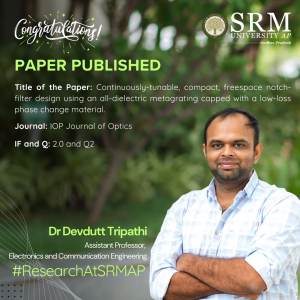 This research paper titled, “Continuously-tunable, compact, freespace notch-filter design using an all-dielectric metagrating capped with a low-loss phase change material” by Dr Devdutt Tripathi, Assistant Professor, Department Electronics and Communication Engineering explores the use of active metasurfaces combined with phase change materials (PCMs) to enhance optical technologies thereby enhancing optical technologies across various sectors including telecommunications and imaging sectors.
This research paper titled, “Continuously-tunable, compact, freespace notch-filter design using an all-dielectric metagrating capped with a low-loss phase change material” by Dr Devdutt Tripathi, Assistant Professor, Department Electronics and Communication Engineering explores the use of active metasurfaces combined with phase change materials (PCMs) to enhance optical technologies thereby enhancing optical technologies across various sectors including telecommunications and imaging sectors.
Abstract:
Active metasurfaces utilising phase change materials (PCMs) are currently under investigation for applications in free-space optical communication, optical signal processing, neuromorphic photonics, quantum photonics, and compact LiDAR. Attention has now turned towards novel PCM like Sb2S3 which exhibit lower optical absorption and reasonable values of refractive-index contrast in comparison to traditional data-storage PCM. We propose and numerically study the class of all-dielectric metagratings capped with low-loss PCM and predict the possibility of continuously tunable resonances whose quality factors degrade gracefully during the amorphous-to-crystalline phase transition of the PCM. Specifically, we consider the CMOS-compatible silicon-nitride on silica substrate material platform for simple and asymmetric metagratings (in particular, the symmetric-broken dimerization) and Sb2S3 capping. Our numerical study predicts that notch-filters operating around the 1550 nm NIR wavelength window can be achieved with tuning range of over 76 nm with Q-factors ranging from 784 (amorphous-phase) to 510 (crystalline-phase) (a degradation in Q of about 35%) and insertion loss of about 0.9 dB. These performance figures are a significant improvement over previously published designs utilizing data-storage PCMs and other traditional notch-filter mechanisms. We examine the influence of grating dimerization and geometrical parameters on performance metrics of the notch-filter and predict the possibility to trade-off rejection-band and in-band spectral transmission properties. Lastly, we perform a study of an all-optical phase change mechanism. Our study is promising for the miniaturization of tunable notch-filter based optical systems.
Explanation in Layperson’s Terms:
This research explores the use of advanced materials called metasurfaces (engineered materials especially in a 2D thin film structure), combined with phase change materials (PCMs- Semiconducting alloys of the Chalcogen family), for improving already existing and emergent technologies such as Optical communication, LiDAR (an acronym for Light Detection and Ranging), and Quantum photonics. Metasurfaces are thin layers with typical thickness ranging from a few hundred nanometers to several micrometers that can manipulate light in unique ways. In this study, the focus is on a specific PCM, Antimony Trisulphide (Sb2S3), which exhibits lower light absorption and better control over how it interacts with the incident light compared to traditional PCMs such as GST225 (Germanium Antimony Telluride) used in data storage. We propose a new design of metasurfaces, called metagratings, that can be “tuned” by changing the state of the PCM between amorphous and crystalline forms. The study predicts that these metasurfaces can be used to create notch filters, which block specific wavelengths of light, particularly around the 1550 nm range commonly used in fiber optics. When the PCM switches states, the filter can shift by 76 nm, with only a minor decrease in performance, about 35%. The study also looks at how small changes in the shape and structure of the metagratings can fine-tune their performance, allowing for a balance between filtering strength and light transmission. Overall, this research points to a promising way of miniaturizing and improving tunable optical filters for a range of high-tech applications.
Practical Implications:
This research has several practical implications:
1. Optical Communication: It can improve free-space optical
communication by offering tunable filters to enhance signal clarity and reduce interference.
2. Miniaturized LiDAR: Smaller, more efficient LiDAR systems for autonomous vehicles and 3D mapping can be developed.
3. Optical Signal Processing: Faster, more efficient photonic circuits could be created for data processing and telecommunications.
4. Neuromorphic and Quantum Photonics: The tunable metasurfaces can support advanced computing and quantum technologies by precisely controlling light.
5. Energy Efficiency: Sb₂S₃ uses less power than traditional materials, making devices more energy-efficient.
6. Sensing and Imaging: It can improve sensors and imaging systems by allowing more precise wavelength control.
7. CMOS Compatibility: The research can be integrated into existing semiconductor technologies, facilitating mass production.
Collaborators:
1. Prof. Hardik S. Vyas: Assistant Professor in Department of ICT, PDEU, Gandhinagar, Gujarat.
2. Prof. Ravi S Hegde, Associate Professor in Department of Electrical Engineering, IIT Gandhinagar, Gujarat.
Future Research Plans:
Research in Metasurface can be explored towards various applications such as imaging, microscopy as well as communication.
Article Link:https://iopscience.iop.org/article/10.1088/2040-8986/ad80a6
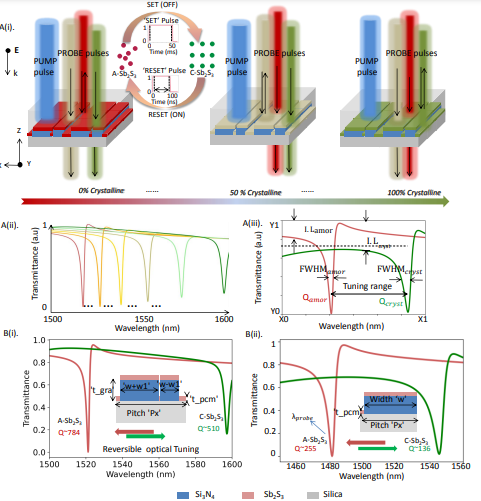
- Published in Departmental News, News, Research News
Enhancing Atmospheric Water Harvesting for Sustainable Water Solutions
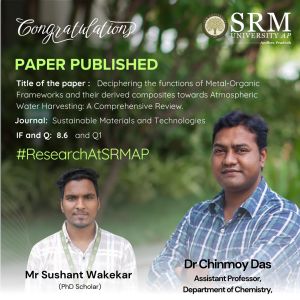 As water scarcity becomes an increasingly pressing issue, innovative solutions like atmospheric water harvesting (AWH) are being explored to provide sustainable access to fresh water. Dr Chinmoy Das, Assistant Professor from the Department of Chemistry and his research scholar Mr Sushant Wakekar have in their research paper titled, “Deciphering the functions of Metal-Organic Frameworks and their derived composites towards Atmospheric Water Harvesting: A comprehensive Review” analysed the crucial role of metal-organic frameworks (MOFs) and their composites in enhancing the efficiency of AWH systems.
As water scarcity becomes an increasingly pressing issue, innovative solutions like atmospheric water harvesting (AWH) are being explored to provide sustainable access to fresh water. Dr Chinmoy Das, Assistant Professor from the Department of Chemistry and his research scholar Mr Sushant Wakekar have in their research paper titled, “Deciphering the functions of Metal-Organic Frameworks and their derived composites towards Atmospheric Water Harvesting: A comprehensive Review” analysed the crucial role of metal-organic frameworks (MOFs) and their composites in enhancing the efficiency of AWH systems.
Abstract
To address water scarcity globally, recently atmospheric water harvesting (AWH) has emerged as an intriguing and sustainable solution. This comprehensive review critically investigates how diversity in metal-organic frameworks (MOFs) and their composite materials shapes the effectiveness and practicality of AWH technologies. These materials range from pristine MOFs to functionalized MOFs-based composites to attain the sophisticated hydrophilic behavior to perform as water harvesters. The multifaceted effects of MOFs and their composite materials on the kinetics of sorption and condensation, the feasibility of water uptake and release, the overall performance of the materials, the theoretical understanding of water uptake, and various instrumentation techniques have been demonstrated in this comprehensive review. It contributes to the ongoing discourse on sustainable water sourcing by emphasizing the pivotal role of materials diversity in shaping the future of AWH technologies.
Explanation of Research in layperson’s terms:
This review article explains how AWH technology, which captures water from the air, could provide sustainable solutions for water scarcity. We focus on advanced materials called MOFs and their ability to improve AWH efficiency. By analyzing different types of MOFs and MOF-based composites, we explore how they enhance water absorption and release, potentially making AWH more practical and effective for real-world use.
Practical/Social Implications of the Research:
This technology could have far-reaching social impacts by offering a reliable water source for communities in arid or remote areas, reducing reliance on traditional, often costly water sources, and strengthening resilience to climate change.
Future Research Plans:
To design and synthesis a material which can work with a minimum relative humidity (%RH) and design a suitable prototype for it.
Link to the Article
https://www.sciencedirect.com/science/article/pii/S2214993724003002
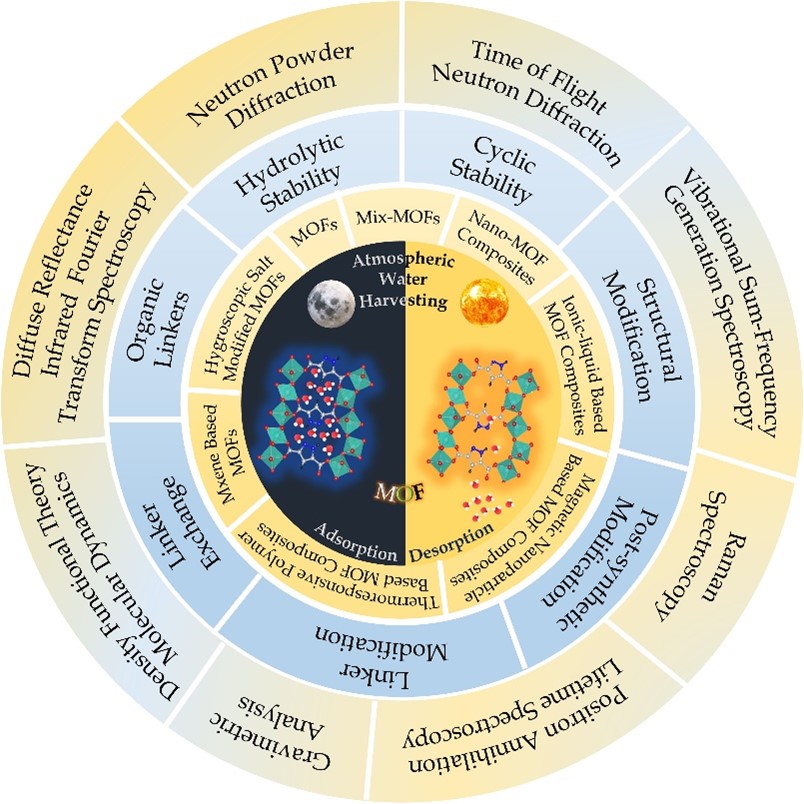
- Published in Chemistry-news, Departmental News, News, Research News
Entrepreneurship Bootcamp 2.0: A Journey of Innovation
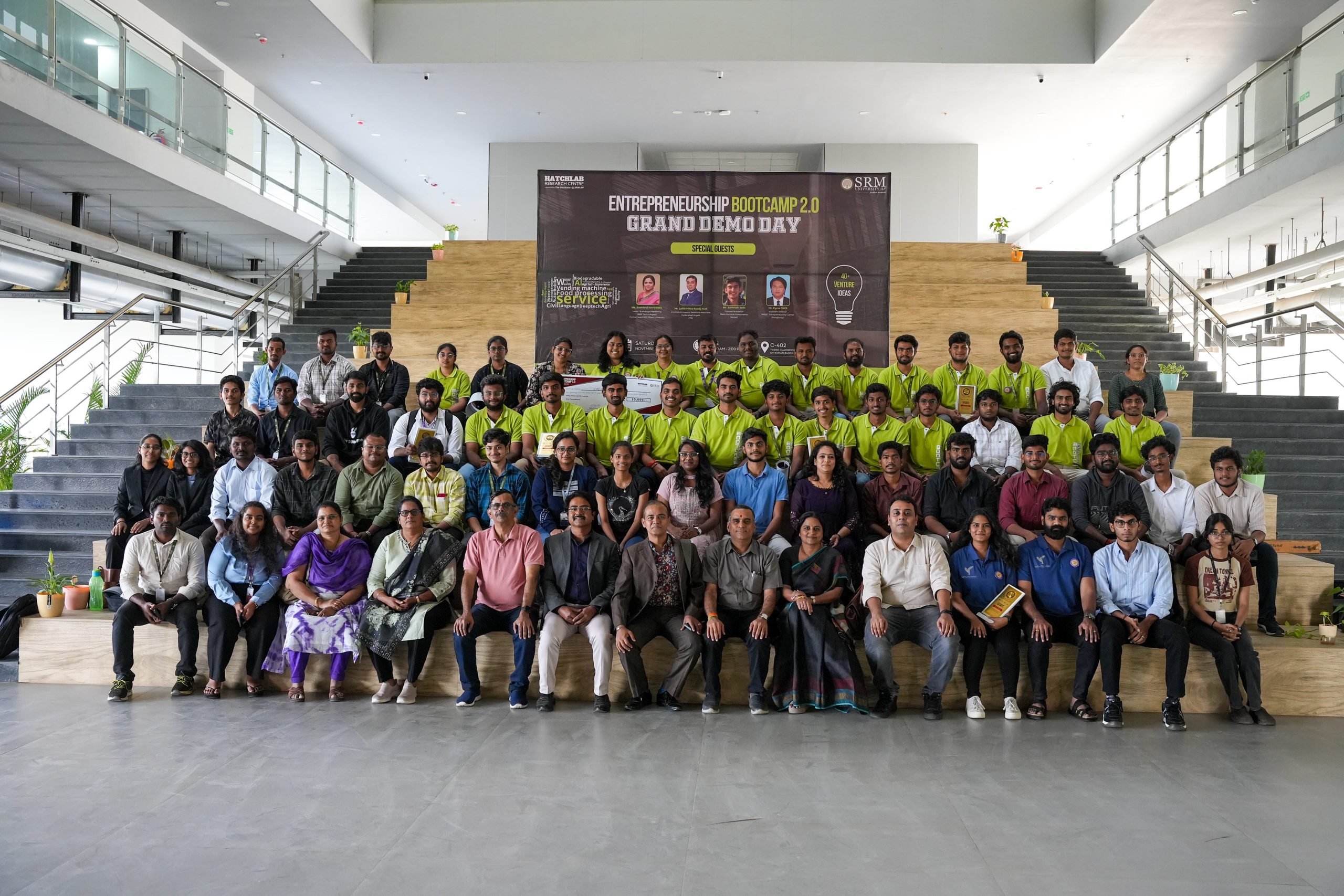 SRM University-AP’s Entrepreneurship Bootcamp 2.0 concluded in style with a vibrant Demo Day, where budding entrepreneurs gathered with innovative ideas, driven by their passion for building successful ventures. The event, held on the university’s Amaravati campus, marked the culmination of a ten-week intensive entrepreneurship training programme designed to foster innovation among students.
SRM University-AP’s Entrepreneurship Bootcamp 2.0 concluded in style with a vibrant Demo Day, where budding entrepreneurs gathered with innovative ideas, driven by their passion for building successful ventures. The event, held on the university’s Amaravati campus, marked the culmination of a ten-week intensive entrepreneurship training programme designed to foster innovation among students.
The Demo Day featured an elite panel of mentors and investors, including Ms Sreedevi Devireddy, Head-Branding & Marketing, ASIP Technologies and Former Head of VDC Gitam University; Mr Cyrus Choi, Assistant Director of the Entrepreneurship Centre at Hong Kong University of Science and Technology (HKUST); Mr Lalith Mitra Reddy Kolli, Portfolio & Investor Relations Associate at Hyderabad Angles; Mr Samridh Seth, Founder, Black Komodo Investments, Dubai along with Prof. Sidharth Tripathy, Director-Entrepreneurship & Innovation, Mr Udayan Bakshi, Associate Director-Entrepreneurship and Innovation, Dr Krovi Raja Sekhar, CEO, Hatchlab Research Centre and Mr Pankaj Belwariar, Director-Communications of SRM University-AP.
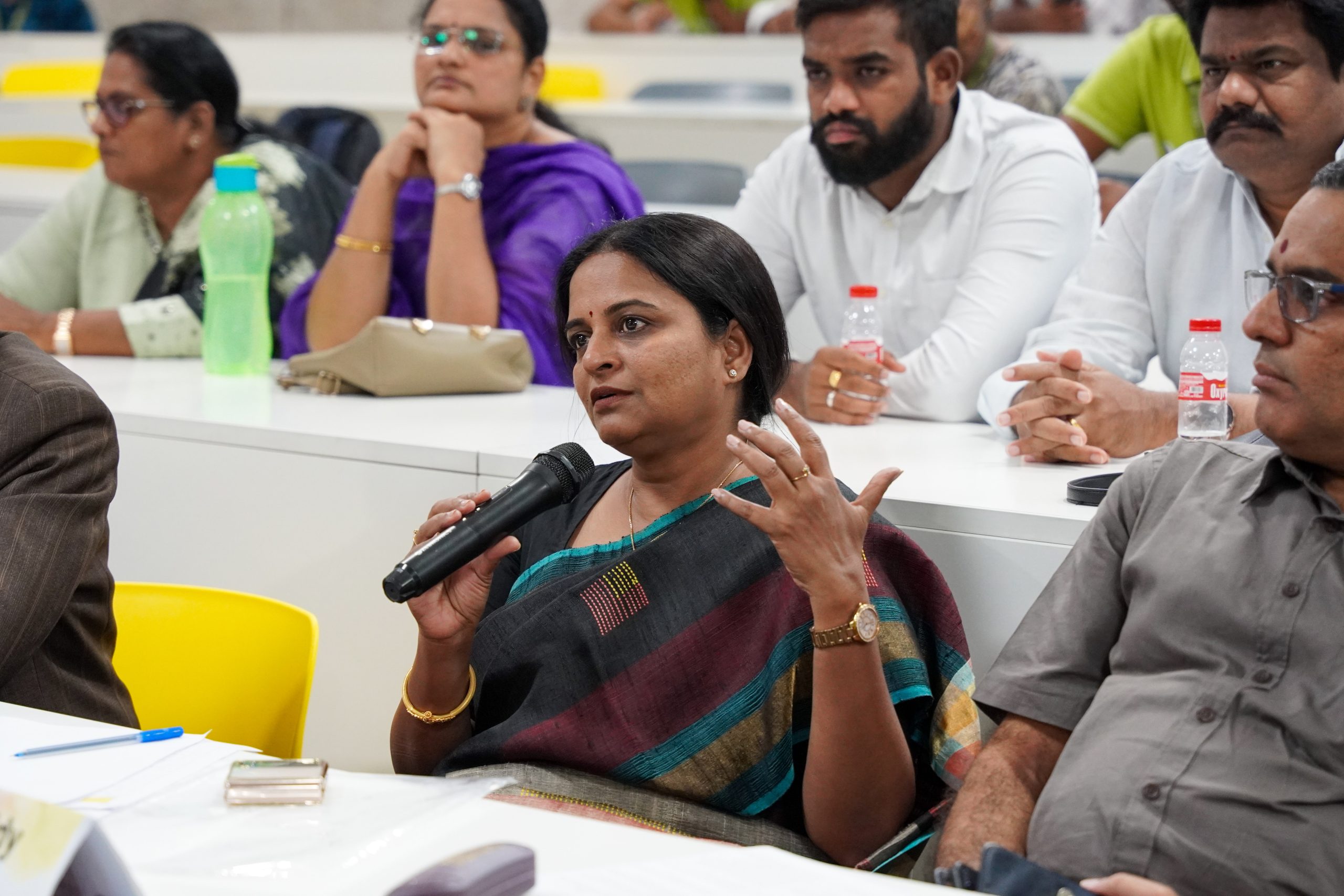 The dynamic presentations by the participants showcased their innovative ideas, business models, and go-to-market strategies. The esteemed panel offered constructive feedback, enabling participants to refine their ventures further. “We approached you as living start-ups, and you rose to the occasion, demonstrating the hunger and drive of true entrepreneurs. Keep that fire alive,” Ms Sreedevi applauded the students.
The dynamic presentations by the participants showcased their innovative ideas, business models, and go-to-market strategies. The esteemed panel offered constructive feedback, enabling participants to refine their ventures further. “We approached you as living start-ups, and you rose to the occasion, demonstrating the hunger and drive of true entrepreneurs. Keep that fire alive,” Ms Sreedevi applauded the students.
The Entrepreneurship Bootcamp 2.0 engaged 85 participants, selected from over 356 applicants after a competitive selection process. Curated by Prof. Sidharth Tripathy, a Harvard alumnus and the Director-Entrepreneurship & Innovation at SRM University-AP, the bootcamp comprised 14 interactive sessions covering ideation, business modelling, and go-to-market planning. The programme included world-class case studies and hands-on mentoring sessions with global experts.
Participants represented ventures in diverse fields such as Waste-to-wealth innovations, Augmented reality, Automobiles, Food processing, AI and Deep tech, Healthcare, Agritech etc. Of the 16 standout ventures identified during the programme, the top 10 teams received incubation grants of ₹50,000 each.
“This event stands as a testament to the passion and dedication of our students. Their hard work has earned them the incubation opportunity that they truly deserve. These grants will support their entrepreneurial journeys through incubation and acceleration at the Hatchlab Research Centre, SRM University-AP’s premier business incubator,” said Prof. Tripathy.
- Published in IDEA NEWS, Innovation, News
SRM University-AP Forges Partnership with TAR UMT, Malaysia
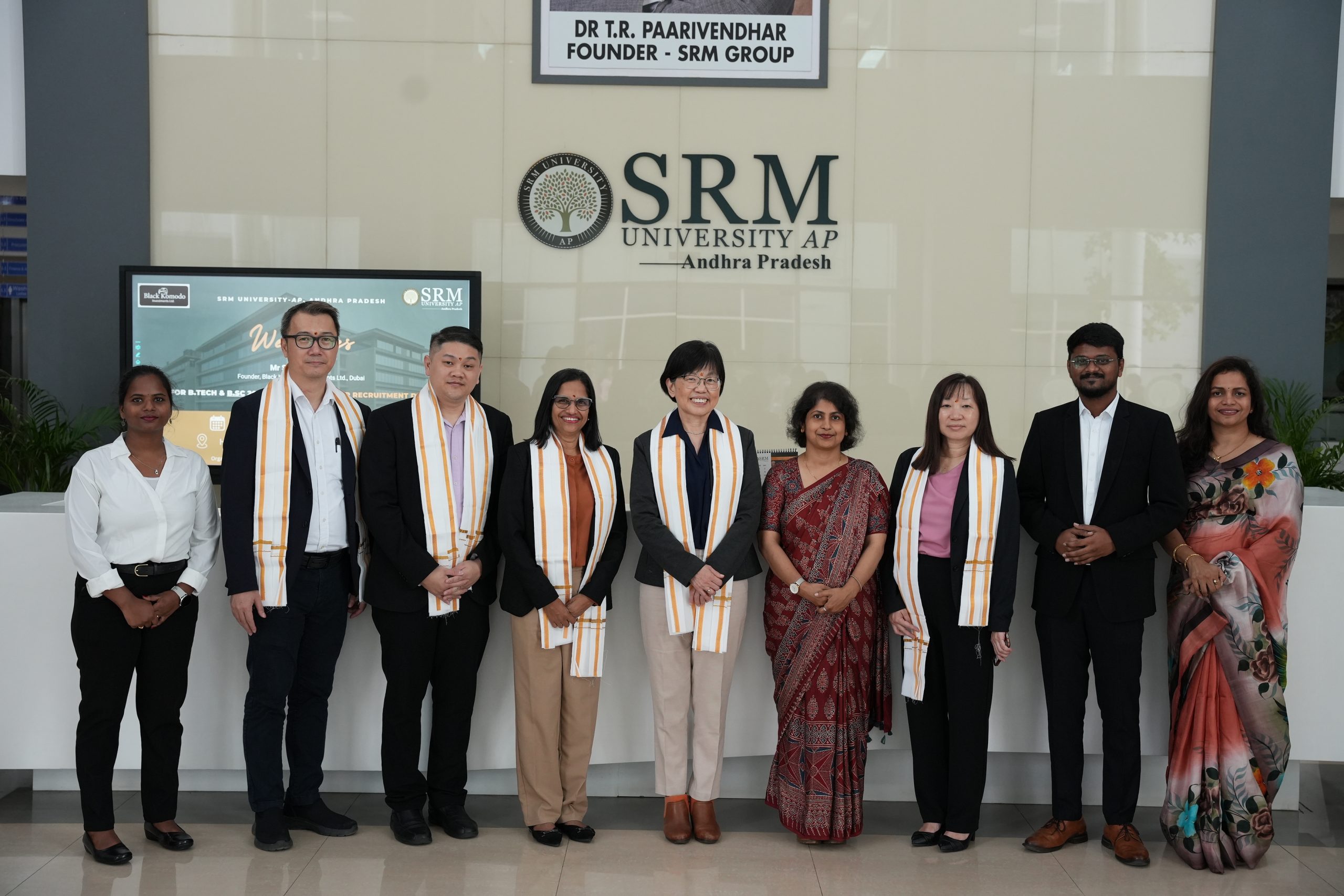 The Directorate of International Relations and Higher Studies at SRM University-AP signed a Memoranda of Understanding (MoU) with Malaysia’s globally renowned institution—Tunku Abdul Rahman University of Management And Technology, TAR UMT, Malaysia.These partnerships are aimed at fostering collaborative research, expanding publication opportunities, offering co-teaching and course supervision, and hosting joint conferences.
The Directorate of International Relations and Higher Studies at SRM University-AP signed a Memoranda of Understanding (MoU) with Malaysia’s globally renowned institution—Tunku Abdul Rahman University of Management And Technology, TAR UMT, Malaysia.These partnerships are aimed at fostering collaborative research, expanding publication opportunities, offering co-teaching and course supervision, and hosting joint conferences.
The Malaysian delegation, represented by Prof. Say Sok Kwan, Vice President for Administration and Internationalisation at TAR UMT, expressed a shared vision. “At TAR UMT, our primary focus is to ensure that we uphold the highest standards in education and prioritise affordable education to all. We are not commercially driven.” She asserted that this partnership will generate research that not only benefits our local community but also has a positive impact on society at large.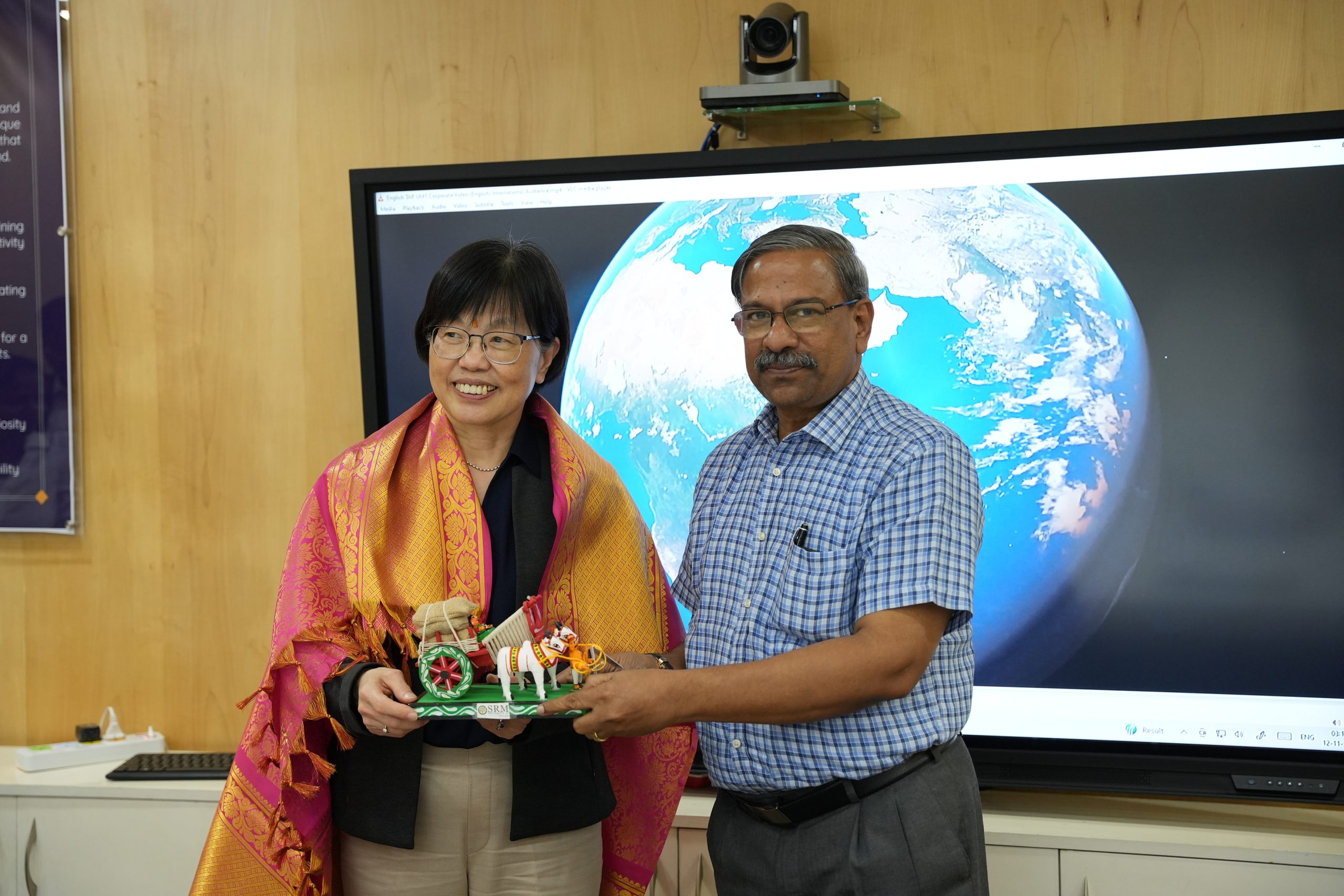
Adding to this sentiment, Prof. Ranjit Thapa, stated that the varsity being a research-intrinsic university wherein the varsity dedicates 15-20% of its budget for research. He stated that collaborating with TAR UMT would be a step towards co-creating knowledge that addresses global challenges. Dr Sudeshna and Prof. Ranjit Thapa brainstormed with the Malaysian delegation on areas that they can begin collaborating, they agreed that Industry Internships, enrollment in upcoming international conferences and co- supervising research would be a great start.
Prof. C V Tomy, Dean School of Engineering and Sciences, presented the Malaysian Delegation with a gist of the university’s research, academic and Entrepreneurial environment. He stressed on the fact that as an institution of higher education SRM AP focuses on research and that here at the varsity, research is encouraged across all programmes, including the faculty and the undergraduate students.
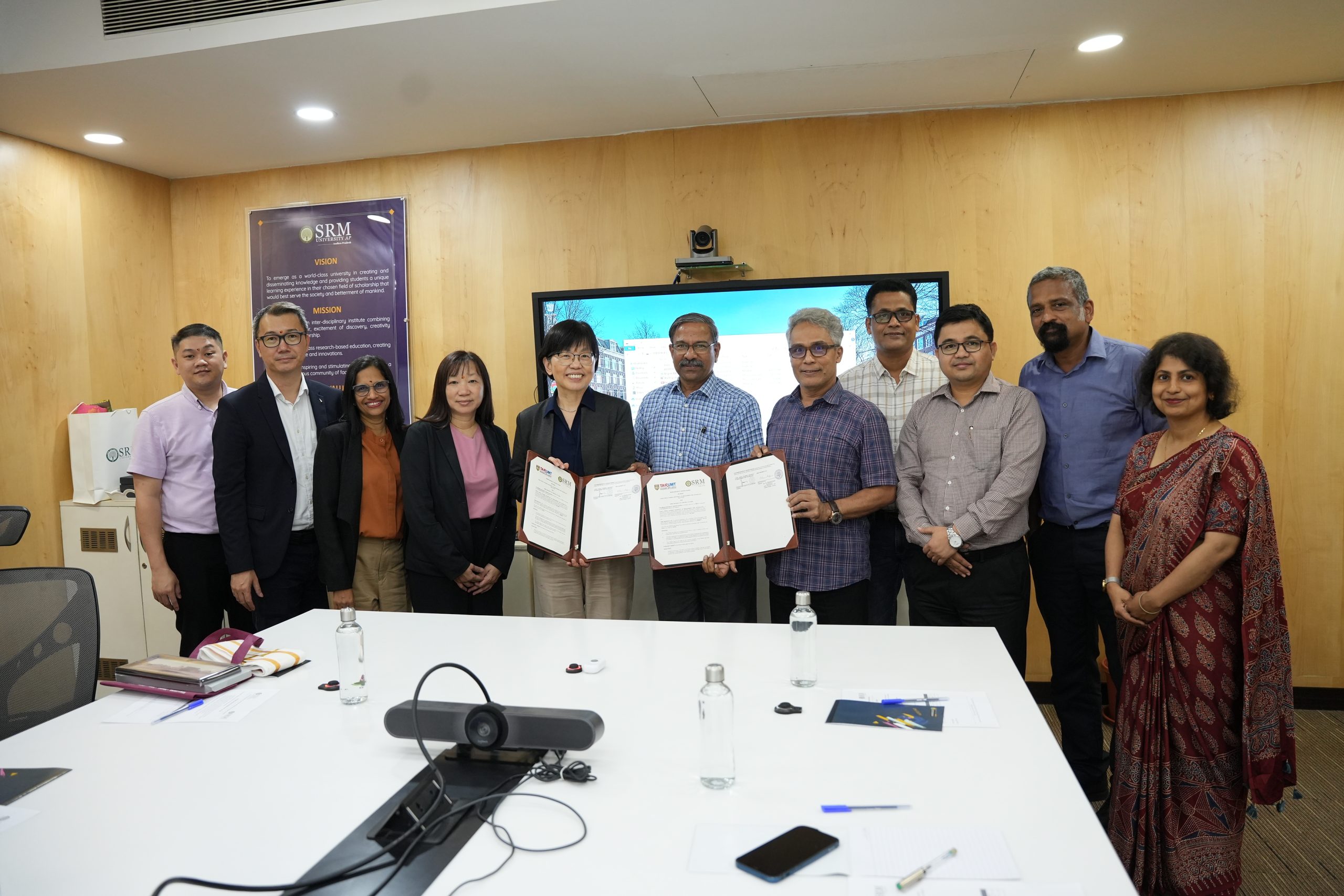 Dr Sudeshna Saha, Associate Director of the Directorate of International Relations and Higher Studies at SRM University-AP, as well as other esteemed deans and faculty members, attended the event. Alongside the Malaysian representatives, including Dr Loke Chui Fung, Vice President for Research & Development and Commercialisation, and Dr Karthiyani Shanmugam, Dean of the Faculty of Social Science and Humanities, Mr Marcus Ooi Hwee Jin– Director, Department of International Student Office, and Mr Danny Chng Loi Peng– Director, Centre for Continuing and Professional Education .
Dr Sudeshna Saha, Associate Director of the Directorate of International Relations and Higher Studies at SRM University-AP, as well as other esteemed deans and faculty members, attended the event. Alongside the Malaysian representatives, including Dr Loke Chui Fung, Vice President for Research & Development and Commercialisation, and Dr Karthiyani Shanmugam, Dean of the Faculty of Social Science and Humanities, Mr Marcus Ooi Hwee Jin– Director, Department of International Student Office, and Mr Danny Chng Loi Peng– Director, Centre for Continuing and Professional Education .
This partnership is poised to enhance academic synergies and contribute significantly to addressing both local and global challenges through collaborative research and education.
CINEMATES Team Clinches 2nd Prize in National Documentary Competition on Disaster Management
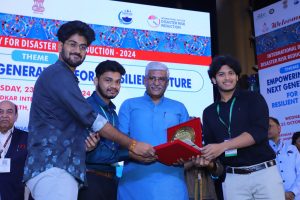 SRM University-AP is thrilled to announce that its talented CINEMATES team has secured the 2nd prize at the national level in the Documentary Competition on Disaster Management. This prestigious event was organised by the National Institute of Disaster Management (NIDM) under the Ministry of Home Affairs, Government of India, in celebration of the International Day for Disaster Risk Reduction 2024.
SRM University-AP is thrilled to announce that its talented CINEMATES team has secured the 2nd prize at the national level in the Documentary Competition on Disaster Management. This prestigious event was organised by the National Institute of Disaster Management (NIDM) under the Ministry of Home Affairs, Government of India, in celebration of the International Day for Disaster Risk Reduction 2024.
The competition centred on the theme “Empowering the Next Generation for a Resilient Future,” encouraging participants to explore innovative approaches to disaster management through their creative works. The CINEMATES team’s entry, a short film titled “After Shock,” stands out for its poignant narrative and compelling visuals that underscore the critical importance of disaster management education.
Written and directed by the brilliant student Shanmuka Shiva Durgesh Durvasula, “After Shock” delves into the harrowing experience of an earthquake through the contrasting perspectives of two individuals. The film masterfully portrays their survival instincts, shedding light on the emotional and psychological impact of such disasters. Noteworthy contributions in editing were made by Shaik Thaheer, Durgesh, and stunning cinematography by Siva Avula, all of which elevate the film’s powerful message.
In addition to the recognition, the team was awarded a cash prize of ₹1,50,000, a testament to their hard work and dedication. This achievement not only highlights the creative talents of SRM University-AP’s students but also reinforces the institution’s commitment to fostering a culture of awareness and resilience in disaster management.
As the university celebrates this remarkable accomplishment, it encourages all students to continue their journey toward making a meaningful difference in society through innovative thinking and responsible filmmaking.
- Published in Departmental News, News, student affairs news, Students Achievements
Prof. R Ramanujam Exploring the Role of Mathematics and Science in Social Inclusion
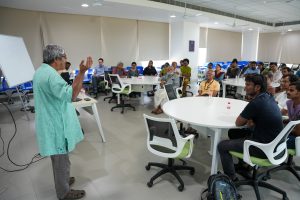 On October 4, 2024, Department of Mathematics at SRM University-AP hosted its 10th Distinguished Lecture, featuring renowned mathematician and educator Prof. R Ramanujam. The event attracted a diverse audience, including BSc and BTech students, PhD candidates, and faculty members, all eager to engage with the critical topic of mathematics and science education for students from socially and economically marginalised backgrounds.
On October 4, 2024, Department of Mathematics at SRM University-AP hosted its 10th Distinguished Lecture, featuring renowned mathematician and educator Prof. R Ramanujam. The event attracted a diverse audience, including BSc and BTech students, PhD candidates, and faculty members, all eager to engage with the critical topic of mathematics and science education for students from socially and economically marginalised backgrounds.
Prof. Ramanujam’s lecture posed a thought-provoking question: “What do mathematics and science education mean to a student from socially and economically marginalised sections?” Drawing from his extensive experience in various educational contexts, he provided valuable insights into the intersection of education and social equity. His work with the Tamil Nadu Science Forum, government curriculum bodies, and teacher education programs at Azim Premji University in Bengaluru informed his perspective on the necessity of aligning educational practices with the realities faced by marginalised communities.
During his talk, Prof. Ramanujam emphasised the importance of conducting educational research that is deeply rooted in social contexts. He argued that curriculum-making decisions should be informed by such research to ensure that education is socially inclusive and responsive to the unique challenges faced by disadvantaged students. His advocacy for an education system that addresses the needs of all learners resonated strongly with the audience, highlighting the potential for education to serve as a transformative force in society.
Prof. R Ramanujam is a distinguished figure in the fields of mathematics and education. He completed his PhD at the Tata Institute of Fundamental Research (TIFR) and pursued postdoctoral work at the City University of New York (CUNY), USA. His long-standing association with the Institute of Mathematical Sciences (IMSc) in Chennai and his current role as a visiting professor at Azim Premji University further underscore his commitment to advancing educational practices.
The lecture provided a stimulating exploration of how mathematics and science education can help address social inequalities. Prof. Ramanujam’s reflections on education, grounded in his experiences with marginalised communities, left a lasting impact on attendees. The event concluded with an engaging Q&A session, where participants raised questions about the challenges of implementing socially rooted educational reforms. This discussion reinforced the lecture’s key themes of inclusivity and the transformative potential of education when designed to meet the diverse needs of learners.
The 10th Distinguished Lecture at SRM University-AP not only highlighted the importance of educational equity but also inspired dialogue on how institutions can better serve all students, particularly those from marginalized backgrounds.
- Published in Departmental News, Math News, News


